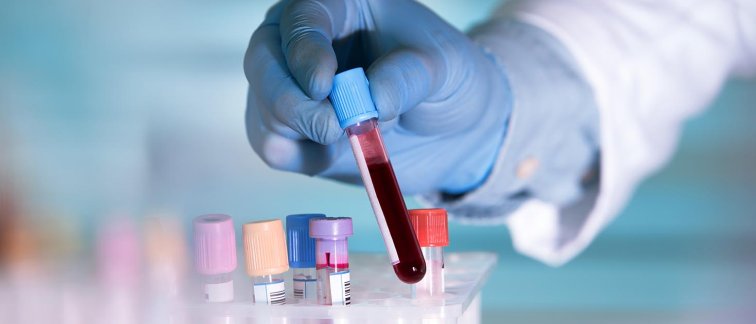Blood-based biomarkers hold great promise for improving diagnostics of Alzheimer's disease. For example, several studies show the usability of these biomarkers in specialized memory clinics. However, there are no proper studies executed on the usability outside these centers. "We are positive about the tentative introduction of these blood biomarkers in specialized memory clinics like the Alzheimer Center Amsterdam. The biomarkers are only used as part of a comprehensive diagnostic pathway. In addition, a positive result must be confirmed by a PET scan or biomarkers in cerebrospinal fluid," says Charlotte Teunissen. "It is still too early to use blood biomarkers in primary care, therefore additional studies need to be done. We will start with such studies in a broader population in the upcoming years, so that in the future blood biomarkers for the diagnosis of Alzheimer’s can become a tool for general practitioners."
Advantages of blood biomarkers
Since PET scans or biomarkers in cerebrospinal fluid are less useful outside specialized clinics due to limited accessibility, invasiveness, contraindications and high costs, the widespread use of blood biomarkers might be the solution on a worldwide level. The test for blood biomarkers is more easily available for large groups of patients. Especially in the early stages of the disease, where the researchers saw that the misdiagnosis, mostly in primary care, is higher.

Teunissen: "A major advantage of using blood biomarkers is that taking blood is less invasive and also less expensive than current diagnostics tools. Blood biomarkers are therefore easier to use. But to be able to implement it in widespread clinical use, more research needs to be done first."
Read the publication in the Journal of the Alzheimer’s Association: The Alzheimer's Association appropriate use recommendations for blood biomarkers in Alzheimer's disease

